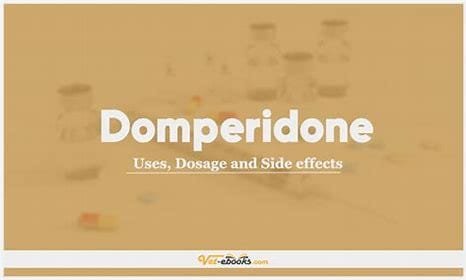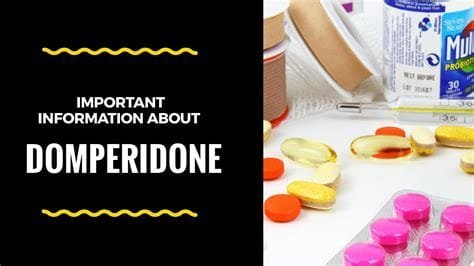Introduction Motilium, which is generally known under its generic nomenclature of Domperidone, is one of the medicines used for patients that are suffering from nausea and vomiting. Other instances prescribe the medication to a patient who has problems with the abdomen, such as bloating and stomach discomfort, to name a few, as results of indigestion. This medicine works by stimulating the stomach and intestines into further contractions and movement to help in digestion more smoothly. Let us explain the composition, usage, benefits, and drawbacks of Motilium in simple words.

Formation of Motilium
Motilium is presented in forms such as tablets, suspensions, and suppositories, depending on the requirements and the patient’s state. Domperidone is an active ingredient of Motilium and is actually a medication in the dopamine antagonist class. More broadly, it works by blocking dopaminergic receptors in the gut and also the brain. This action controls nausea and vomiting and results in the better movement of food in the digestive system.
The strengths available of the Motilium tablet are either 10 mg or 20 mg. The inactive ingredients include lactose monohydrate, maize starch, and magnesium stearate, which help in the composition of the pill and make it easy to take.
How Mtilium Works (Mechanism of Action)
Motilium is a prokinetic and antiemetic medication that works by blocking dopamine receptors in the upper part of the digestive system, which increases the movement of food contents from the stomach to the intestines, thus enhancing the relief of symptoms such as nausea, vomiting, bloating, and discomfort.
Another way it prevents nausea is through its effect on the vomiting center of the brain, which is responsible for the compulsive desire to vomit, hence making it very effective in the treatment of nausea caused by several reasons, including gastrointestinal problems and other drug side effects.
Uses of Motilium
Motilium has a plethora of uses, especially among individuals who experience nausea and digestive problems. The most common uses include:
Motilium is the first used to combat nausea and vomiting, especially those conditions caused by gastrointestinal problems, side effects of drugs, or other conditions.
Gastroesophageal Reflux Disease (GERD):
Motilium prescribes in dealing with symptoms of GERD—an instance wherein the stomach acid backs up into the esophagus, thereby causing heartburns and discomforts.
Indigestion and bloatedness:
Patients who experience indigestion or feel full and bloated may be given Mtilium because it helps food to pass through the stomach.
Gastroparesis:
A condition characterized by the inability of stomach muscles to function accordingly, resulting in delayed stomach emptying. Therefore, Motilium can enhance food movement and benefit from reduced discomfort.
Lactation Support:
In some cases, Motilium is prescribed off-label to promote milk supply among breastfeeding mothers as Domperidone acts as a prolactin releaser.

Benefits of Motilium
Effective in Managing Nausea and Vomiting:
Motilium has proven to be very effective in regulating nausea and vomiting, primarily for cancer patients or patients with gastrointestinal diseases.
It may quickly relieve symptoms like bloating, making patients feel more comfortable following meals.
It is useful in GERD and digestive problems.
Motilium enhances gastrointestinal motility, and henceforth, it is useful for the treatment of GERD and gastroparesis by creating simple digestion and fewer discomforts.
Multi-form Available:
Motilium is available in tablets, liquids, and suppositories; thus, the drug is very accessible to patients according to their preference or condition.
Motilium may boost breast milk production in women who have few problems of low milk production.
Disadvantages of Motilium
Possible Side Effects:
Common adverse effects experienced with this drug include dry mouth, headache, dizziness, abdominal cramps, and diarrhea. These are usually mild but could make some patients uncomfortable.
Serious Heart Risks:
Among some of the scary risk concerns is an indirect effect on heart rhythm through Motilium. It has also been associated with QT prolongation, a type of abnormal heart rhythm that can lead to serious complications, especially in older adults or any individuals that have other heart-related conditions.
Not Suitable for All:
Some patients have conditions like severe liver disease or are also on some other medications that can have an effect on their heart rhythm. Motilium is thus not safe to administer them.
Restricted Use in Some Countries:
Motilium has restricted availability and usage in some countries due to its possible related risks to the heart. It is only prescribed in the strict medical watch or short-term in some areas.
It can interact with other drugs that affect the heart or those whose metabolism is in the liver. Patients need to consult their doctors before taking Motilium together with other drugs.
Precautions and Warnings:
Motilium may also trigger other complications in patients who have heart diseases or arrhythmias due to its potential interference with the electrical impulses of the heart.
Pregnancy and Breastfeeding:
Even though Motilium is sometimes used off-label as a help for aiding lactation, the drug’s safety profile during pregnancy and breastfeeding cannot be completely established. Hence, it requires consultation with a healthcare provider.
Dosage:
Adherence to the prescribed dosage is best avoided to avoid overdosing. That might heighten the side effects or precipitate a worse reaction.
Interactions with drugs:
All prescription or over-the-counter drugs shall be reported to the doctor to avoid drug-drug interaction that may have adverse results.
Kidney and Liver Disorders:
In case the patient has kidney or liver disorders, then a patient may have to decrease the dose or the patient is advised not to use Motilium.
Conclusion

Motilium, or Domperidone, is for the treatment of nausea, vomiting, and other gastrointestinal issues such as gastroesophageal reflux disorder and gastroparesis. This medicine helps much in preventing nausea and vomiting but has side effects; some side effects occur on heart conditions. Patients on Motilium need to discuss with the doctors whether this drug will be appropriate and whether changes will be required because of the side effects and drug interactions.
In a nutshell, though Motilium offers plenty of benefits, especially digestive health and aversion of nausea, a good balance can only be garnered under strict medical supervision to avoid harmfulness.



